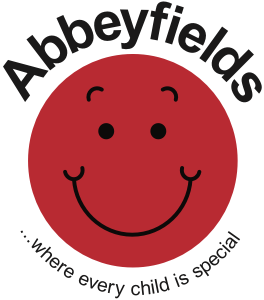Reading
We would love the children to read with or to a grown up every day as little and often is definitely the best way to build up confidence and stamina. We are also keen for the children to realise that they are reading all of the time and promote reading books and texts other than their school reading books. Taking part in challenges such as the Year 1 ‘Rainbow Reader’ running throughout the year or special reading competitions and sponsored activities will help to support your child with this. Keep looking at the High Frequency words your child is learning too – could you copy them out and make a game of snap with them? Could you stick them up on the bathroom mirror and practice them whilst brushing your teeth?
Spelling
In Year 1 the spellings are differentiated to suit each child. Some children find spelling patterns easy and others take a little longer and benefit from consolidation time. All children will receive their spellings half-termly and you will receive a copy of their spelling list for that half term to keep at home. The dates of tests for each list of spellings will also be on the letter (remember if you lose a letter copies are available on the school website – letters section). To round up each half term, the children will complete an informal test of the words learnt during that whole half term. This is to promote the longer learning of these words, so that they are not just ‘learnt for the test’.
Click here to see Spelling homework.
Other Homework Ideas
Go Small:
- Snuggle up on a big chair with your child and tell each other stories – use your favourite characters from a book or people you know and take them on wild imagined adventures…
- Talk about your favourite things as a child, compare them to your child’s favourite things. What is the same/different? Why might this be? What hobbies/interests could you build together?
- Get the colouring pencils out…draw, colour and create together
Go Big:
- Get messy in the kitchen and cook up a storm. Get your child talking about measures and weighing the ingredients, think about flavours, talk about the temperature of the oven – lots of maths and lots of fun… and tasty too!
- Build a model – what could you create with the odd cereal box or loo roll, some kitchen foil and a wooden spoon? A rocket? A puppet? A theatre? A house? The possibilities are endless.
- Make some playdough – help your child measure out and mix the ingredients using their weighing and measuring skills – plus it’s so much fun to play with (and a great fine motor work out!) It will last for weeks if you keep it in a sealed bag in the fridge.
You need:- 2 cups plain flour,
- 2 tablespoons vegetable oil,
- 1/2 cup salt,
- 2 tablespoons cream of tartar,
- Up to 1.5 cups boiling water (add slowly until it feels just right),
- food colouring (optional),
- few drops glycerine
Go Global:
- Get online using these links to access some fun games and activities that can keep your child’s brain ticking all day long
- Top Marks has fantastic interactive maths games for children ranging from number recognition to ordering, addition and subtraction to estimating and covers includes games using numbers to 10, 20, 100 and beyond.
- ICT Games is a fantastic high frequency word game that we use a lot in the classroom. The children really enjoy reading the words quickly and it helps them to build up their fluency with these common words. You can also print out a certificate at the end if you wish.
- BBC Bitesize has loads of fabulous resources to use to cover topics across the curriculum. All games are offered at a variety of levels and include instructions to help you understand what the children are learning.
- BBC Cbeebies Good Old CBeebies have lots of fun interactive online games for you and your child to get involved with as well as the shows to watch. Many of the games have a maths or English focus, but others are promoting values such as ‘healthy lifestyles’ or ‘friendship’ and others focus on giving children opportunities to improve their fine motor control or hand/eye coordination

